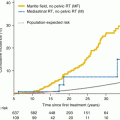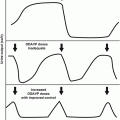Group
Health belief pattern
Appropriate intervention
Adaptive beliefs group
AYAs demonstrate high scores on all HCBI factors
Support that reinforces positive beliefs and reinforces adherence to recommendations and achieving personal goals
Low autonomy group
AYAs have primarily positive beliefs, but have low scores on independence/autonomy scale
Support should include a consideration of reasons for lower autonomy; work should include survivors and parents, with a focus on pursuing developmentally appropriate health-care management and personal goals
Vulnerable group
AYAs have low scores across all HCBI domains
Support may need to focus more intensively on negative beliefs and on setting goals to enhance disease management and quality of life
Attending to developmental issues associated with survivorship can also facilitate good transition planning. Childhood cancer survivors may not have had full access to information during their treatments and often learn of their long-term medical risks for the first time during a follow-up visit [37]. Further, as childhood cancer survivors reach new developmental stages and new levels of cognitive understanding, it may be necessary to reteach health-related information. As survivors reach adulthood and take on the direct responsibility of managing their own health care, this complex task that was formerly handled by parents and can be overwhelming and frightening – and might require more support and direction for the survivor. Being aware of each survivor’s developmental trajectory and tailoring psychoeducation and support to that level can facilitate survivors’ engagement in care.
In order to accommodate these concerns, it is critical to develop ways of responsibly educating survivors on their medical risk while minimizing the anxiety that such education may provoke [35]. Providers should be attuned to the potential psychological impact of the information they are delivering and should be sensitive to the fact that many survivors may be hearing the information directly for the first time or may feel independently responsible for managing this health-related issue for the first time. Being careful to ask about and listen to survivors’ perceptions and health beliefs, and then carefully correcting misperceptions, can minimize anxiety-provoking misunderstandings that can impede participation in future medical care. Providing anticipatory guidance about psychosocial symptoms that are normative for many survivors (e.g., anxiety and worry about medical late effects, distress when reminded of cancer and late effects) can also minimize worry. Helping survivors recognize aspects of the situation that they control (e.g., participating in regular preventive care) and identifying their areas of strength in managing their own health may also decrease the chances that posttraumatic reactions could undermine their involvement in future medical care.
Finally, while it is recommended that all patients receive this standard level of psychosocial care integrated into each follow-up visit, some survivors will demonstrate specific, and possibly intensive, psychological needs. It is therefore important to maintain a referral list of care providers who can deliver more intensive care, including psychotherapists and neuropsychologists.
20.7 Research and Practice: Developing Interventions Targeting Psychological Late Effects
A critical piece of providing comprehensive follow-up care is interdisciplinary research to develop and demonstrate the effectiveness of psychosocial interventions consistent with or integrated into follow-up care. There are relatively few evidence-based interventions for survivors, although the largest set of interventions available are helpful in targeting health behaviors (e.g., [14, 58, 59, 72]). As an example of an intervention targeting PTSS across members of the family, the Surviving Cancer Competently Intervention Program (SCCIP; [46]) integrates cognitive behavioral approaches to distressing symptoms of posttraumatic stress within a family systems intervention model. SCCIP has been shown to reduce PTSS in survivors and in their fathers [40]. Other more general pilot programs suggest the feasibility of interventions that aim to educate survivors during a follow-up visit on their medical vulnerability and on the need for continued participation in follow-up care (e.g., [18]) and that aim to provide sustained psychosocial via telephone contact after a follow-up visit [90]. The longer-term effectiveness of such programs is not yet known.
20.8 Conclusion
Overall, survivors of childhood cancer report good psychological adjustment and have low rates of psychopathology. However, a significant minority may experience psychosocial challenges that threaten their ongoing development, including PTSD, impaired physical quality of life, and maladaptive beliefs about their health. Particularly for survivors of a central nervous system malignancy, these challenges may be associated with educational and employment challenges. Social and relationship differences, particularly in brain tumor survivors, are also vulnerabilities in many survivors. It is essential that comprehensive follow-up care includes sensitive assessment of these issues and referral to appropriate community resources, as well as health-care interventions that account for and are informed by any specific psychosocial concerns that a survivor demonstrates. Involvement of psychosocial professionals, including social workers, psychologists, and psychiatrists, on comprehensive follow-up care teams should therefore be seen as essential.
Finally, it is important to emphasize that the psychological experience after childhood cancer is not unidimensional and negative. Emerging theoretical models and early research explorations indicate many survivors and their parents experience positive psychological outcomes that they ascribe to the childhood cancer experience (e.g., [73, 108]). Many psychologists working with survivors have qualitative or anecdotal reports that parents and survivors grow to appreciate at least some parts of the cancer experience. Parents and survivors frequently explain that childhood cancer taught them to put things in perspective in ways that other people do not do and that they are not as materialistic and are more empathic. Survivors frequently feel that they are more mature than others their age and that they value their family relationships more. Family members and survivors may feel grateful to the medical professionals who worked with them and proud of their ability to manage – and survive – a challenge like childhood cancer [41]. Drawing on these strengths and the positive contributions of the cancer experience can help survivors and their family members weather any challenges they might face. Understanding the complicated interplay of these strengths with the more challenging psychological late effects experienced by some survivors can help providers work more effectively to promote positive adaptation and growth in the decades after childhood cancer survivorship.
References
1.
Alderfer MA, Hodges JA (2010) Supporting siblings of children with cancer: a need for family-school partnerships. Sch Ment Health 2:72–81
2.
Alderfer M, Labay L, Kazak A (2003) Brief report: does posttraumatic stress apply to siblings of childhood cancer survivors? J Pediatr Psychol 28:281–286PubMed
3.
American Psychiatric Association (1994) Diagnostic and statistical manual of the American Psychiatric Association, 4th edn. American Psychiatric Press, Washington, DC
4.
Arpawong TE, Oland A, Milam JE, Ruccione K, Meeske KA (2013) Post-traumatic growth among an ethnically diverse sample of adolescent and young adult cancer survivors. Psychooncology 22(10):2235–2244PubMed
5.
Barakat LP, Alderfer MA, Kazak AE (2006) Posttraumatic growth in adolescent survivors of cancer and their mothers and fathers. J Pediatr Psychol 31(6):413–419PubMed
6.
Barrera M, Shaw AK, Speechley KN, Maunsell E, Pogany L (2005) Educational and social late effects of childhood cancer and related clinical, personal, and familial characteristics. Cancer 104(8):1751–1760PubMed
7.
Boman KK, Lindblad F, Hjern A (2010) Long-term outcomes of childhood cancer survivors in Sweden. Cancer 116:1385–1391. doi:10.1002/cncr.24840 PubMed
8.
Bonner MJ, Hardy KH, Willard VW, Anthony KK, Hood M, Gururangan S (2008) Social functioning and facial expression recognition in survivors of pediatric brain tumors. J Pediatr Psychol 33(10):1142–1152PubMed
9.
Brier MJ, Schwartz LA, Kazak AE (2015) Psychosocial, health-promotion, and neurocognitive interventions for survivors of childhood cancer. Syst Rev 34(2):130–148
10.
Brown R, Madan-Swain A, Lambert R (2003) Posttraumatic stress symptoms in adolescent survivors of childhood cancer and their mothers. J Trauma Stress 16:309–318PubMed
11.
Butler R, Rizzi L, Handwerger B (1996) Brief report: the assessment of posttraumatic stress disorder in pediatric cancer patients and survivors. J Pediatr Psychol 21:499–504PubMed
12.
Casillias J, Kahn KL, Doose M et al (2010) Transitioning childhood cancer survivors to adult-centered healthcare: insights from parents, adolescent and young adult survivors. Psychooncology 19:982–991
13.
Crom DB, Chathaway DK, Tolley EA, Mulhern RA, Hudson MM (1999) Health status and health-related quality of life in long-term adult survivors of pediatric solid tumors. Int J Cancer 12:25–31
14.
deMoor JS, Puleo E, Ford JS, Greenberg M, Hodgson DC, Tyc VL, Ostroff J, Diller LR, Levy AG, Sprunck-Harrild K, Emmons KM (2011) Disseminating a smoking cessation intervention to childhood and young adult cancer survivors: baseline characteristics and study design of the partnership for health-2 study. BMC Cancer 11:165
15.
DeRosa BW, Kazak AE, Doshi K, Schwartz LA, Ginsberg J, Mao JJ, Straton J, Hobbie W, Rourke MT, Carlson C, Ittenbach RF (2011) Development and validation of the health competence beliefs inventory in young adults with and without a history of childhood cancer. Ann Behav Med 41(1):48–58PubMedCentralPubMed
16.
DeRuiter MA, Van Mourik R, Schouten-VanMeeteren AY, Grootenhuis MA, Oosterlaan J (2013) Neurocognitive consequences of a paediatric brain tumour and its treatment: a meta-analysis. Dev Med Child Neurol 55:408–417
17.
Eiser C (2007) Beyond survival: quality of life and follow-up after childhood cancer. J Pediatr Psychol 32(9):1140–1150. doi:10.1093/jpepsy/jsm052 PubMed
18.
Eiser C, Hill JJ, Blacklay A (2000) Surviving cancer: what does it mean for you? An evaluation of a clinic based intervention for survivors of childhood cancer. Psychooncology 9:214–220PubMed
19.
Eiser C, Vance YH, Glaser A, Galvin H (2003) The value of the PedsQTLM in assessing quality of life in survivors of childhood cancer. Child Care Health Dev 29(2):95–102PubMed
20.
Elkin TD, Phipps S, Mulhern RK, Fairclough D (1997) Psychological functioning of adolescent and young adult survivors of pediatric malignancy. Med Pediatr Oncol 29:582–588PubMed
21.
Emmons KM, Butterfield RM, Puleo E, Park ER, Mertens A, Gritz ER, Lahti M, Li FP (2003) Smoking among participants in the childhood cancer survivors cohort: the partnership for health study. J Clin Oncol 21(2):189–196PubMed
22.
Erickson S, Steiner H (2001) Trauma and personality correlates in long term pediatric cancer survivors. Child Psychiatry Hum Dev 31:195–213PubMed
23.
Fuemmeler BF, Elkin TD, Mullins LL (2001) Survivors of childhood brain tumors: behavioral, emotional, and social adjustment. Clin Psychol Rev 22:547–585
24.
Gartstein MA, Noll RB, Vannatta K (2000) Childhood aggression and chronic illness: possible protective mechanisms. J Appl Dev Psychol 21(3):315–333
25.
Gerhardt CA, Dixon M, Miller K, Vannatta K, Valerius KS, Correll J, Noll RB (2007) Educational and occupational outcomes among survivors of childhood cancer during the transition to emerging adulthood. J Dev Behav Pediatr 28:448–455PubMed
26.
Glover DA, Byrne J, Mills JL, Robison LL, Nicholson HS, Meadows A, Zeltzer LK (2003) Impact of CNS treatment on mood in adult survivors of childhood leukemia: a report from the Children’s Cancer Group. J Clin Oncol 21(23):4395–4401PubMedCentralPubMed
27.
Granek L, Nathan PC, Rosenberg-Yunger ZR, D’Agostino N, Amin L, Barr RD, Greenberg ML, Hodgson D, Boydell K, Klassen AF (2012) Psychological factors impacting transition from paediatric to adult care by childhood cancer survivors. J Cancer Survivorship Res Pract 6(3):260–269
28.
Hardy KK, Bonner MJ, Masi R, Hutchinson KC, Willard VW, Rosoff PM (2008) Psychosocial functioning in parents of adult survivors of childhood cancer. J Pediatr Hematol Oncol 30(2):153–159PubMed
29.
Haupt R, Fears TR, Robison LL, Mills JL, Nicholson S, Zeltzer LK, Meadows AT, Byrne J (1994) Educational attainment in long-term survivors of childhood acute lymphoblastic leukemia. JAMA 272(18):1427–1432PubMed
30.
Hobbie W, Ogle S (2001) Transitional care for young adult survivors of childhood cancer. Semin Oncol Nurs 17(4):268–273PubMed
Stay updated, free articles. Join our Telegram channel

Full access? Get Clinical Tree






